
Elementary Grammar Test 4 Start vs. Begin. Tri Duc English
Begin, when used as transitive verb, means "start, perform, or undergo the first part of an action or activity." Start, when used as transitive verb, means "cause (an event or process) to happen", or "cause or enable someone or something to begin doing or pursuing something."
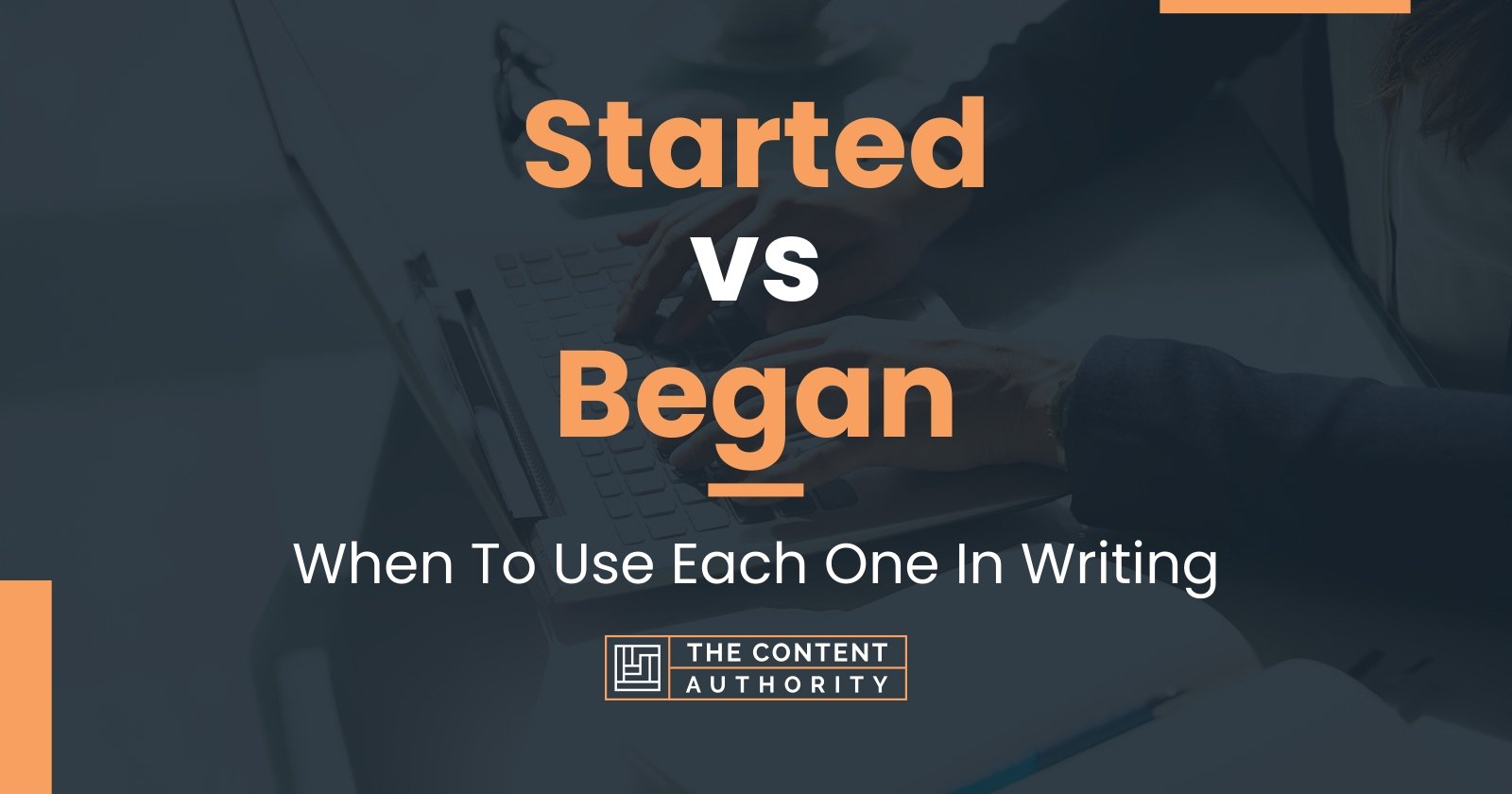
Started vs Began When To Use Each One In Writing
Verb ()(label) To begin, commence, initiate.# To set in motion. #* (Joseph Addison) (1672-1719) I was engaged in conversation upon a subject which the people love to start in discourse. #* , chapter=22 , title= The Mirror and the Lamp, passage=In the autumn there was a row at some cement works about the unskilled labour men.A union had just been started for them and all but a few joined.

BEGAN vs BEGUN How to Use Begun vs Began in Sentences? Confused Words Learn english, Learn
First, let's start with "began." This is the past tense form of the verb "begin." It is used to indicate that an action started in the past and has since ended. For example, "I began my day with a cup of coffee" or "The concert began at 8 pm."

BEGIN VS START Vocabulary lesson with GRAMMAR MAN YouTube
Keeping "began" and "begun" separate in your mind might be tricky, but we're here to begin to help you understand when to use each one!
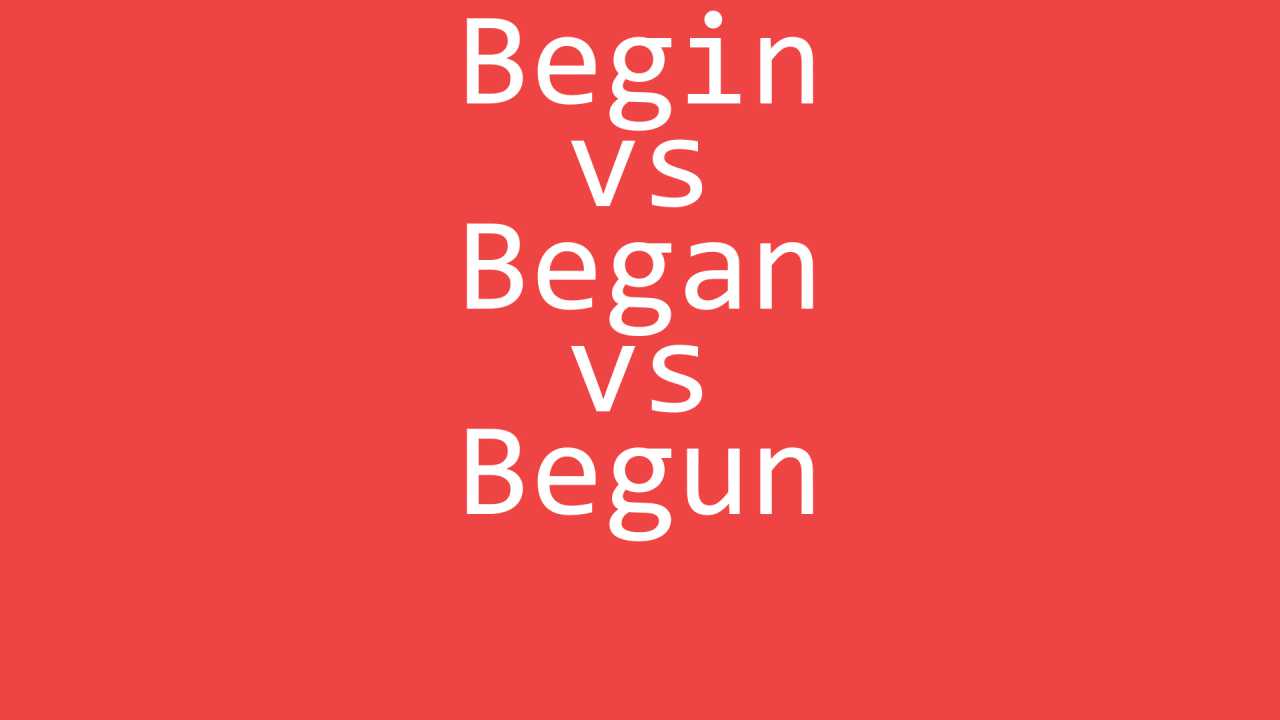
Begin vs Began vs Begun Exercise English Grammar Exercise
BEGIN vs. START There isn't much difference in meaning between begin and start. Begin is more frequently used in written English and is often used when you are describing a series of events.Start, on the other hand, is more common in spoken English and in business contexts. We can use the verbs begin and start to mean the same thing but begin is more formal than start.

04ighappyenglishStartvsBegin English grammar, Learn english, English language learning
Begin or start? Grammar > Easily confused words > Begin or start? from English Grammar Today We can use the verbs begin and start to mean the same thing but begin is more formal than start. Begin is an irregular verb. Its past simple form is began and its -ed form is begun: When did you begin learning English? The meeting didn't start until 9 pm.
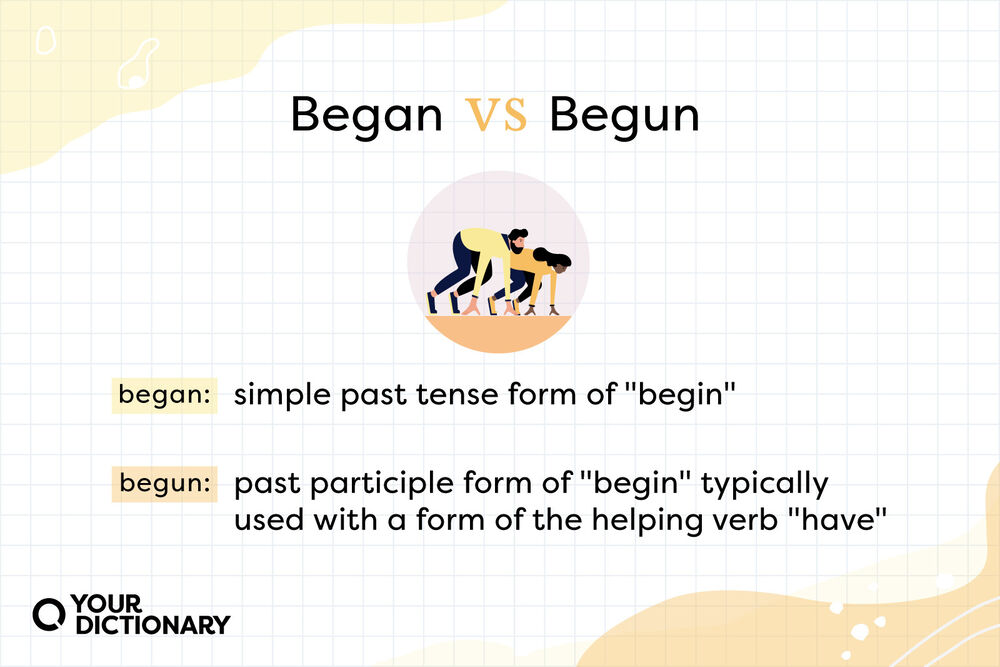
Begun vs. Began Choosing the Right Word YourDictionary
Begun or Began: It All Starts With Begin The begun or began debate all starts with one simple word: begin. Both begun and began are past forms of the irregular verb begin. However, when you use these past tense forms of begin will depend on your sentence. Began is the past tense form of begin and is used in a simple past tense sentence.
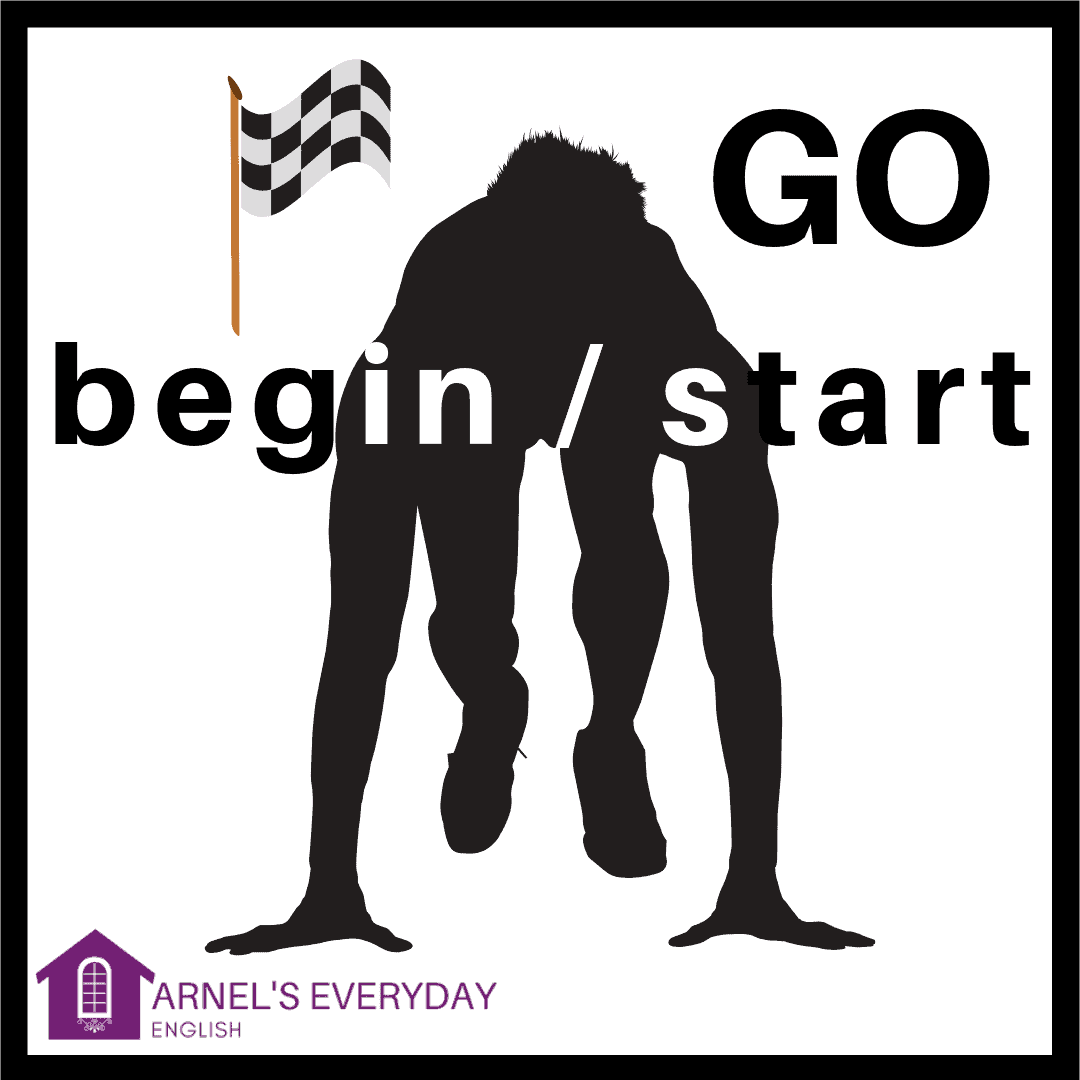
BEGIN or START? What's the difference? Arnel's Everyday English
"Start" is more appropriate for referring to machines or in business. "Begin" is more formal than "start." Apart from that, the most familiar dictionary definitions for "start" and "begin" are similar — to undergo the first part of some activity or action. While you can use these two words synonymously most of the time, that is not always the case.

Irregular Verbs Begin, Began, Begun English grammar Practice ESL EFL ELL YouTube
"Start" refers to the beginning of an action or process, while "began" is the past tense of "begin," which also means to start something. The main difference between the two is that "start" is more commonly used in present tense, while "began" is used in past tense. So, which one should you use in your writing?

Began vs Begun Template 04
begin / start begin / start. There is not much difference in meaning between begin and start, though start is more common in spoken English: What time does the concert start/ begin? She started/ began working here three months ago. Begin is often used when you are describing a series of events: The story begins on the island of Corfu.

When to Use Begin, Began or Begun Video & Lesson Transcript
word choice - What is the difference between "begin" and "start"? - English Language & Usage Stack Exchange What is the difference between "begin" and "start"? Ask Question Asked 3 years, 8 months ago Modified 3 years, 8 months ago Viewed 557 times This question shows research effort; it is useful and clear 1
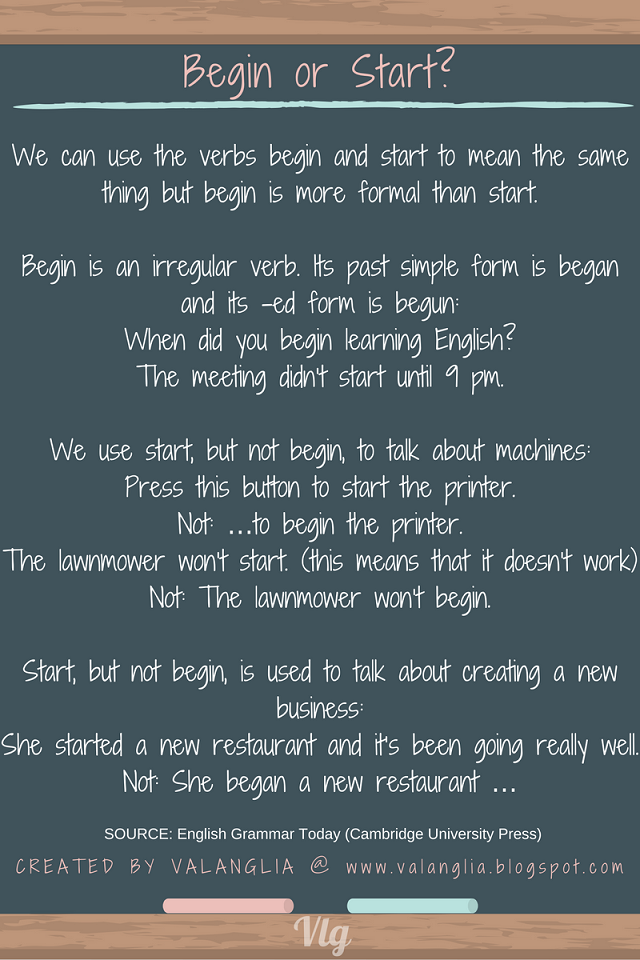
Valanglia COMMON VERBS, ADJECTIVES, ADVERBS AND PREPOSITIONS
"Started" and "began" both refer to the beginning of an action or process. However, "started" is the more general term and can be used in a wider range of contexts. It simply means that something has begun, without specifying any details about how or when it happened.
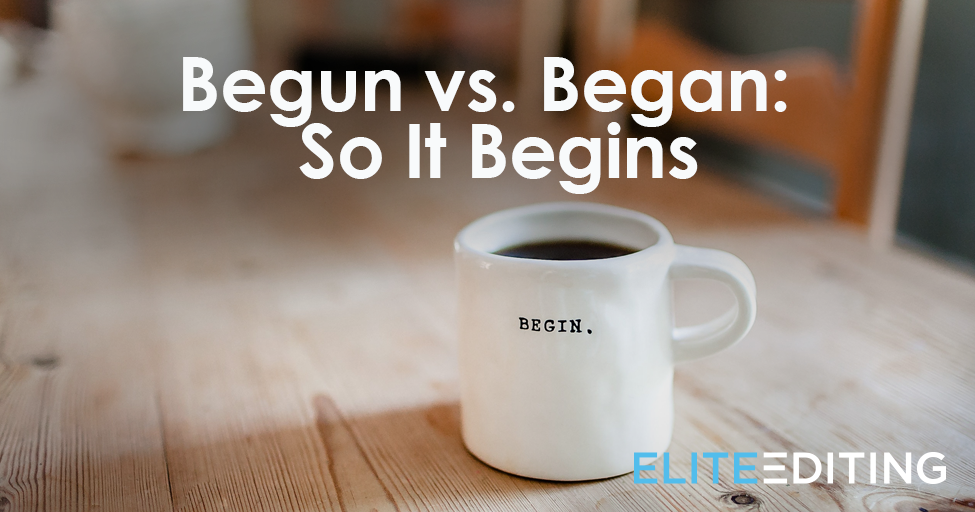
🌱 Started or began. Start vs Began. 20221029
1 used with noun phrases If you start or begin something, you do it from a particular time. There is no difference in meaning. My father started work when he was fourteen. We'll begin the meeting as soon as he arrives. The past tense of begin is began. The past participle is begun. The teacher opened the book and began the lesson.

Begin vs Start Inglês
To sum up, 'start' and 'begin' are synonymous, and the only difference between them is the way they are used, i.e., the use of formal tone and informal tone. Once students understand that 'begin' is used more formally and 'start' isn't, it will be easy for them to understand and use them in the correct context.
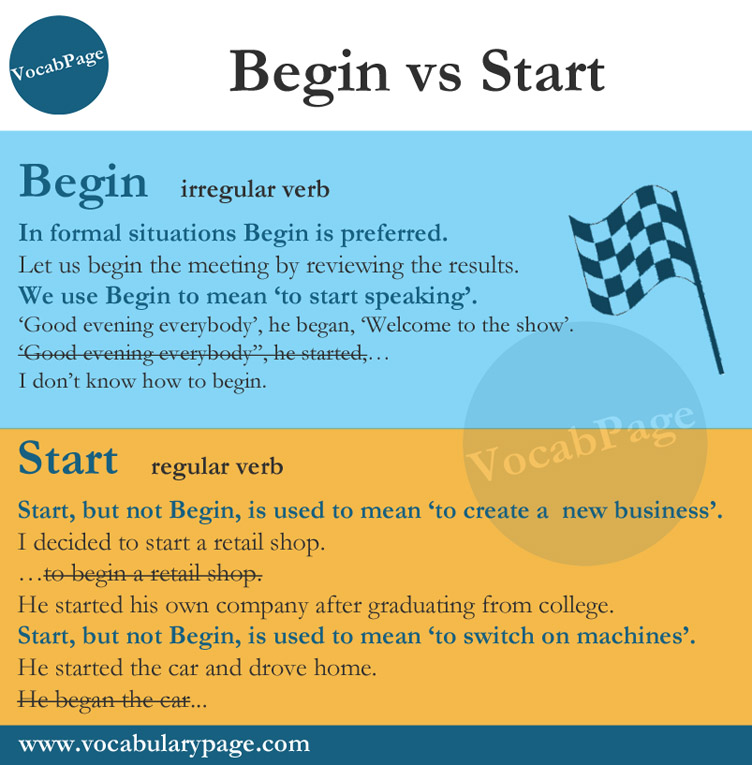
Begin vs Start
Began (Simple Past Tense) The verb "begin" means "start." But whether to use "began" or "begun" for something that has already started depends on how you phrase the sentence. "Began" is the simple past tense of "begin" and used when describing an action or process that started in the past, but that has now finished:

Begin vs Start Parole, Inglese
the beginning. Again, they can both be used in the same way. I love the start/the beginning of that new James Bond film. I didn't really understand the start/the beginning of her lecture. Musical director: Okay everyone, once again from the beginning/the start (of the song). The start/the beginning of every new project can be stressful.